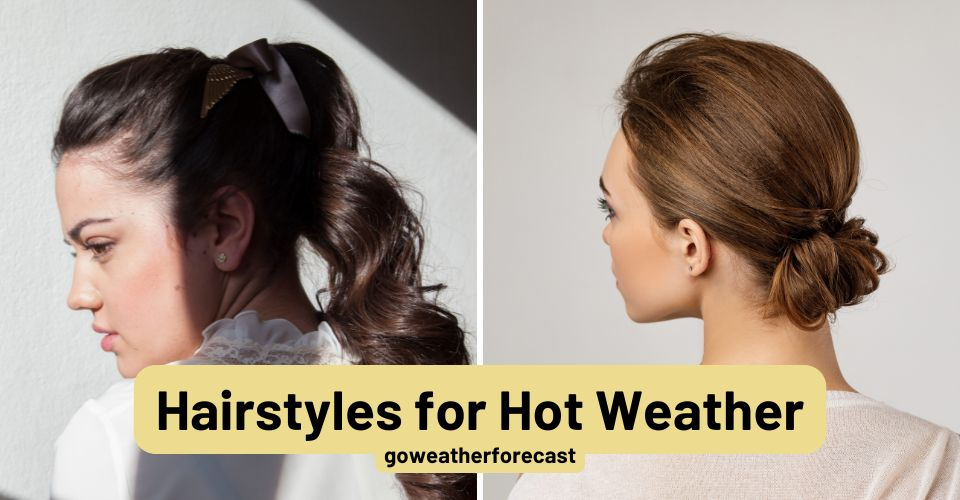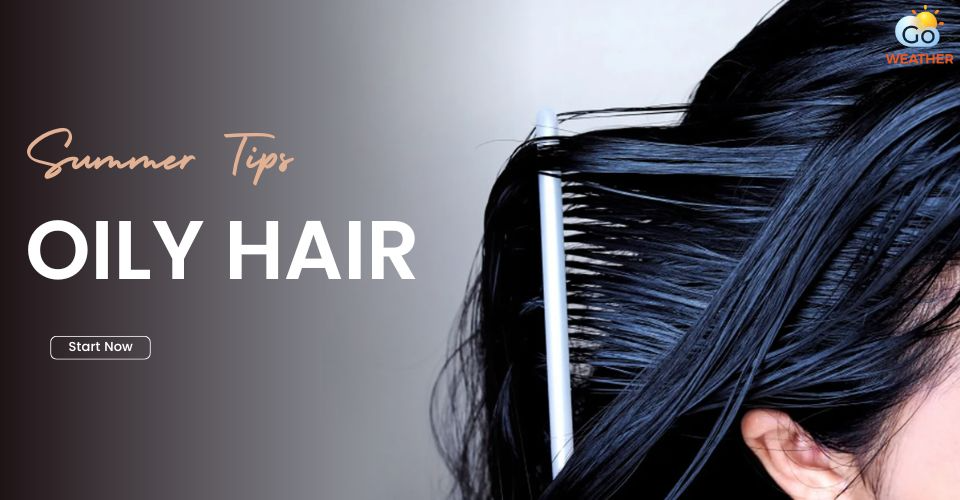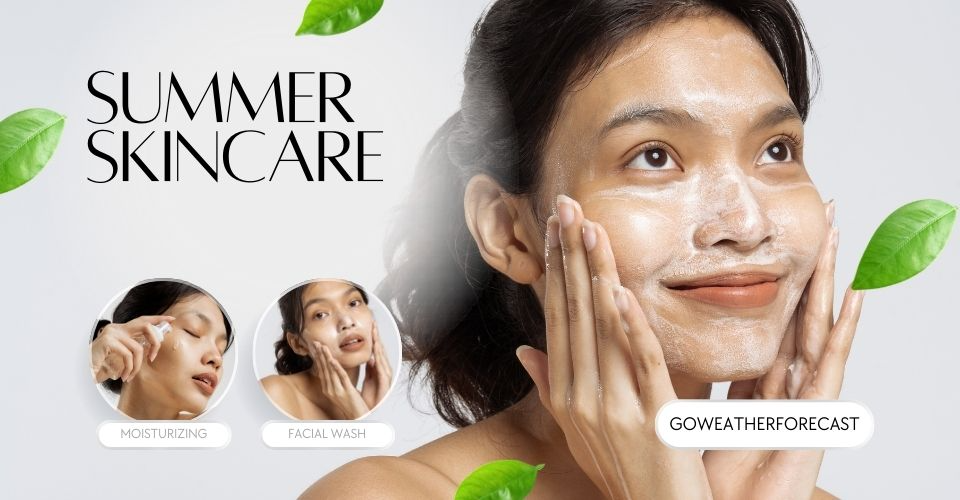Oily Hair Care In Summer: Survival Guide for Greasy Summer Hair
It is so annoying to get greasy hair in hot weather. So what oily hair care in summer should you adhere to? This guide includes some good tips from experts to prevent this issue. Do not miss it!
.jpg)
Best hair care for oily hair
Why Is My Hair More Oily In Summer?
According to Rodney Sinclair, a professor of dermatology at the University of Melbourne, the combination of sebum and sweat is the main reason hair is oilier in the heat.
Sebum is an oily substance released from the sebaceous glands in the skin. Your scalp also produces it. In summer, you are not only dealing with sebum, but sweat also causes headaches.
Of course, the mixture between sebum and sweat makes your hair greasier and greasier.
Melbourne trichologist Kay Fitzgerald also explained that sweat helps move the oil further down the hair shaft. Besides, our body temperature rises under burning heat, which promotes the sebaceous gland to be more active.
.jpg)
Why is my hair so oily in the summer?
Does Oil Harm Scalp or Hair Health?
When the scalp secretes too much oil, many people wonder whether oil harms the scalp or hair's health. The answer is an absolute no.
Dr. Saxon Smith, a dermatologist in St Leonards and Gosford, NSW, said that oily hair would not cause any issues. He said sebum's responsibility is just to moisturize the hair follicles and hair when it comes out.
Although scalp oil is not harmful, it can still lead to troubles. Ms. Fitzgerald explained that an oily scalp is a good environment for dandruff development for some people.
She said that only oily can produce dandruff. “If there was never oil build-up, dandruff could never be produced.”
.jpg)
Does oil harm scalp or hair health?
Essential Oily Hair Care In Summer
Experts recommend that oily-haired people apply the oily hair care routine for better results. Scroll down to find out!
Use dry shampoo
Using dry shampoo can be a good solution for people with oily hair who do not have enough time to wash and dry their hair. Professor Sinclair advises using two dry shampoos for every wet shampoo.
Dry shampoo is a wonderful product with a starch component that helps eliminate and absorb sebum, a natural oil on the scalp.
However, it only works well if you use it correctly. Otherwise, dry shampoo can cause more severe problems, such as dandruff-like flakes, ashy roots, and dull and dry hair.
.jpg)
One summer hair oil tip is to use dry shampoos
How to use dry shampoo correctly
-
Step 1: Select the right tone of dry shampoo for your hair color
If you use a traditional dry shampoo for your dark brown hair, dull roots and an unflattering white cast to your hair can easily happen.
In contrast, if your hair is blonde and you choose a dark shade, there will be silly discolored roots on your hair. Therefore, pick a tone that is most closely suitable for your color.
-
Step 2: Shake it up
Before using, you should shake up the bottle for a few seconds to distribute the formula evenly.
The starch in aerosol formulas can drop to the bottom after several uses. That’s why you should shake the dry shampoo bottle to ensure the best results.
-
Step 3: Do not spray too close to your scalp
According to Ardree Merriweather, a lead educator at Drybar, on dry hair, you need to keep the dry shampoo 4 - 6 inches away from the head before spraying and should spray directly at the roots.
The distance above 12 inches from the roots enables the oil-zapping starch to exit correctly and land evenly on greasy roots.
.jpg)
How to use dry shampoo?
-
Step 4: Keep it moving
Merriweather also advised against spraying continuously in one section. For the best results, spray sweepingly to cover roots as much as possible with a thin product layer.
Avoid conditioner on the scalp
Ms. Fitzgerald said conditioners were not designed for the scalp and can even increase the possibility of build-up on the head.
If you want to use it, try to choose the right type of hair conditioner for oily hair and apply it correctly. Instead of applying your conditioner all over, you should use it just at the ends.
Another important thing is to rinse your hair thoroughly. Sometimes, what you think is grease is just shampoo or conditioner that has yet to be rinsed out thoroughly.
.jpg)
Minimize the use of hair conditioner
Leave shampoo in for longer
Normally, shampoo stays on the scalp for only 30 seconds. Still, Ms. Fitzgerald said that for dandruff or oily scalp shampoo, you should apply it and scratch the scalp lightly for at least 3 minutes to get better results.
After that, wash your hair clearly with water. Make sure that you wash all shampoo and conditioner on your hair.
Clean your brush
An essential hair care routine for oily hair should include cleaning your hairbrush.
Professor Sinclair says brushing your hair is a way to distribute the oil on your scalp down the hair shaft and avoid oil sitting on the scalp.
A dirty hairbrush can put oil back into your hair or become an ideal environment for oil and dirt development, making your hair greasy. Thus, you should clean your brush frequently.
.jpg)
Remember to clean your brush
Do not touch your hair
Do not touch your hair unless you want your hair to become more greasy.
Generally, touching your hair may not be a big problem. But finger twirling and raking you do throughout the day with your hair can significantly impact the look and feel of your hair.
The reason is that your fingertips and face also secrete oil; touching your hair can easily transfer oil from your hand to your scalp, making your grease hair problem even worse.
.jpg)
Avoid touching your hair
Use a natural hair rinse
If you have time, you can use a natural hair rinse for oily hair instead of sulfite hair conditioners. You can make it at home using natural ingredients.
For example, Apple Cider Vinegar can restore balance in your hair scalp. If your hair is too dry or oily, add two tablespoons of apple cider vinegar to a mug of water and use it as a last rinse.
Lemon is another good method for removing oil from the scalp. It balances the scalp's natural oil production, can remove excess oil from hair, and balances the scalp's pH.
Add lemon juice to a mug of water and use it as a last rinse. Your hair will become bouncy and shiny then.
.jpg)
You can rinse your hair with apple cider vinegar
More beauty tips for hot weather:
Does Washing Hair More Frequently Solve Oily Hair?
Many experiments have led experts to conclude that washing your hair more frequently to manage oiliness does not harm it.
According to the American Academy of Dermatology, people with oily hair should wash it once daily to prevent oil buildup. Dr. Smith also recommends avoiding shampoos with a high amount of sulfate.
Sulfate can create a very dry lather; if your scalp is too dry, more oil will be produced to compensate. In addition, many shampoos are available on the shelves in markets. They are designed to manage oiliness and dandruff.
Ms. Fitzgerald said that these oily hair and anti-dandruff shampoos can remove as much sebum from the scalp and hair as possible.
.jpg)
It is ideal to wash your hair once a day
Conclusion
Oil on your hair is not bad but can cause some annoyance. Luckily, essential oily hair care in summer can help you get it under control. Let’s try these tips and say goodbye to greasy hair in the hot weather!












0 Comments
Leave a Comment
Your email address will not be published. Required fields are marked *